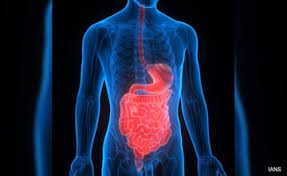Experts have long cautioned against eating late at night, particularly large meals loaded with fats or sugars. Now, there’s another reason to heed their advice: eating within three hours of bedtime at least four days a week could increase the chances of developing colorectal cancer.
In a new study, researchers questioned 664 people undergoing colonoscopies to screen for cancer. Among them, 42% reported being late eaters. This group was found to be 46% more likely than non-late eaters to have an adenoma – a small, noncancerous lesion – discovered during their colonoscopy.
Although an adenoma is not cancer, an estimated 5% to 10% can become cancerous over time. The risk of malignancy varies based on the adenoma’s location in the gastrointestinal tract and its size. During a colonoscopy, doctors meticulously search for, measure, and count these polyps.
“A lot of other studies focus on what we eat but not when we eat,” said Edena Khoshaba, the lead investigator and a medical student at Rush University Medical College in Chicago. “The common advice includes not eating red meat and consuming more fruits and vegetables – which is great, of course – but we wanted to see if the timing affects us at all.”
Khoshaba and her colleagues found that it did. Late eaters were 5.5 times more likely to have three or more tubular adenomas compared to non-late eaters, even after accounting for dietary content. Tubular adenomas are the most common type of polyp found in the colon.
Resetting Your Internal Clock
Eating close to bedtime could disrupt the body’s internal clock, or “circadian rhythm.” In this case, it’s not the central circadian center in the brain – responsible for releasing melatonin to induce sleep – that is affected. Instead, late eating might interfere with the “peripheral circadian rhythm,” which regulates various bodily functions based on the day-night cycle.
Part of this peripheral system is located in the gastrointestinal tract. “For example, if you’re eating late at night, your brain thinks it is nighttime, but your gut thinks it is daytime,” Khoshaba explained during an interview at this year’s Digestive Disease Week conference in Washington, DC.
Expert Insights
“This is an interesting study,” said Amy Bragagnini, a spokesperson for The Academy of Nutrition and Dietetics, when asked to comment on the research. “It is true that eating later at night can disrupt your circadian rhythm.”
“In addition, many of my patients have told me that when they do eat later at night, they don’t always make the healthiest food choices,” Bragagnini added. “Their late-night food choices are generally higher in added sugar and fat, which may cause them to consume far more calories than their body needs.” Consequently, eating late at night can also lead to unwanted weight gain.
Unanswered Questions
An unanswered question is whether late eating is connected to the increasing rates of colorectal cancer seen in younger patients.
This was an observational study, which is not as robust as research that randomly assigns people to either a late or non-late eating group and compares their outcomes over time. Another potential limitation, Khoshaba noted, is that participants were asked to recall their diets over 24 hours, which may not always be accurate.
Are You Keeping Your Stomach Bacteria Awake?
Some microorganisms in the gut have their own internal clocks that follow a daily rhythm, and what you eat influences the activity of different types of these organisms, Bragagnini said.
“So if your late-night eating consists of foods high in sugar and fat, you may be negatively impacting your microbiome.”
The next step for Khoshaba and her colleagues is a study examining the peripheral circadian rhythm, changes in the gut microbiome, and the risk for developing metabolic syndrome.












